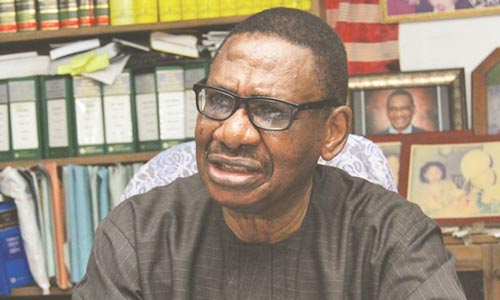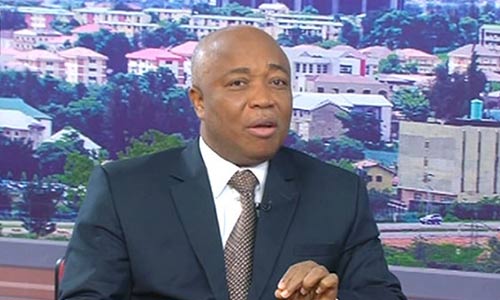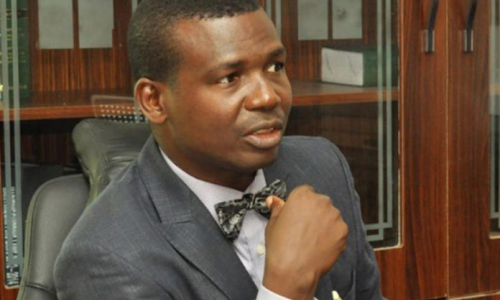Prof. Sagay, SAN Faults Senate’s Refusal To Amend Electoral Act

An eminent professor of law, Itse Sagay (SAN), has urged political appointees to challenge Section 84(12) of the Electoral Act for being in conflict with the constitution.
He believes only the courts can resolve the issue, following the Senate’s refusal to amend the law.
The senators threw out President Muhammdu Buhari’s Bill seeking to amend the Electoral Act, 2022 despite promising to review it after his assent.
The Bill titled: “A Bill for an Act to amend the Electoral Act 2022 and for related matters, 2022,” was overwhelming rejected, a development that effectively stopped its second reading and passage.
Section 84 (12) of the Act provides that ‘no political appointee at any level shall be a voting delegate or be voted for at the convention or congress of any political party’.
The implication is that political appointees who wish to participate in the primaries, which will hold between April 4 and June 3, must resign.
The provision is at variance with sections 66, 107, 137 and 182 of the Constitution, which provide those in public service, who wish to contest for political offices must resign 30 days before the date of the election.
Sagay told The Nation “The issue was not removed by an amendment of the Act, which they had promised the President.
“This means if you are a contestant and you are an appointee, you have to leave government before the primary.
“I’m not sure about when they should resign, but probably it’s the same one month that is in the Constitution that they will follow.
“If that is the case, it means that if primaries are in May and elections are in January next year, effectively, they are being forced to resign more than six months before the election they wish to contest in.”
Asked whether the provision can be challenged in court for being in conflict with the Constitution, Sagay said: “I believe so. That is my view – that it is unconstitutional.”
Another professor of law, Yemi Akinseye-George (SAN), also said the courts would have the final say on Section 84(12) Electoral Act.
He said: “This is one of the most controversial provisions of the newly signed Electoral Act 2022.
“It has been the major bone of contention between the National Assembly and the Presidency.
“The section makes clear that a political appointee, for example, a minister or a special adviser, cannot vote or be voted for at a party congress or convention.
“This implies that such a political appointee cannot be a delegate or aspirant unless he/she resigns from such political appointment.
“The question is when must such resignation take place?
“This provision seems unrealistic and unacceptable to political appointees, who would rather eat their cake and have it.
“They would prefer to remain in office for as long as possible to continue to use the power and influence of office as well as public funds and other resources to prepare for their elections.
“This is one of the most radical provisions of the new Electoral Act. However, can it stand in view of the provisions of the Constitution on a similar subject?
“Section 84(10) of the Electoral Act 2022 (EA) seems to be in conflict with the provision of the constitution, which does not place such requirements on political appointees, but on people employed in the civil or public service of the federation.
“It is not clear whether the term civil service or public service of the federation extends to political appointees.
“Even if they are so considered, civil or public servants are only required by the Constitution to resign from their employment 30 days before the date of the election.
“It does not bar them from voting or being voted for either as a delegate or aspirant at a Convention or Congress because, by the time it is 30 days to an election, all processes including primaries leading up to an election would have been completed. Only the election itself would be left. See Sections 66(1)(f), 107(1)(f),137(1)(g). & 182(1)(g) of the Constitution.
“The safer route, however, is for the National Assembly to amend the provision and bring it into conformity with the Constitution.
“However, if the legislators stick to their gun, the provision will be left for judicial interpretation.
“Any political appointees who want to vote or be voted for at a party congress or convention must resign his appointment before participating in these events.”



